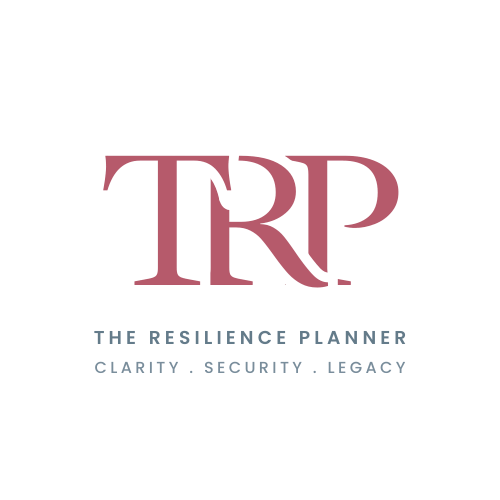Common Unspoken Fears People Have About Estate Planning (And How to Address Them)
Many people hesitate to engage in estate planning, not just because of cost or complexity, but due to deep-seated, often unspoken fears. Yet, estate planning is still a crucial aspect of financial management for many individuals. Addressing these fears is key to ensuring that the process is not only completed effectively but also with peace of mind. Among the most common unspoken fears surrounding estate planning are:
- the fear of facing mortality,
- the fear of losing control,
- the fear of family conflicts,
- the fear of making the ‘wrong’ decisions,
- the fear of complexity and overwhelm,
- the fear of not having ‘enough’ to plan for, and
- the fear of high costs.
Let’s delve into them in depth and look at the ways to address them effectively.
Fear of Facing Mortality
The fear of facing mortality is perhaps one of the most prevalent concerns when it comes to estate planning. They may think “If I plan my estate, it is as if I’m inviting death.” As such, they avoid thinking about it, hoping that things will fall into its place, even if they don’t do anything. Unfortunately, when individuals do not plan early, they lose the right and capacity to dictate what they want at later stages, in the event of mental incapacity. It may also become detrimental for the individual should the family decide to take advantage of the situation. To minimise this, individuals need to confront their own mortality and make decisions about what will happen to their assets when they become mentally incapacitated or after they pass away. To address this fear, it can be helpful to reframe estate planning as a way to provide for and protect themselves and/or their loved ones even after their demise.
Fear of Losing Control
Another common fear is the fear of losing control over one’s assets and decisions. Estate planning is often seen as relinquishing control, but in reality, it is about ensuring that their wishes are carried out according to their terms. By clearly outlining their preferences in a will or trust, they can retain a sense of control over what happens to their estate. The estate plan is also a living document that evolves with changes in their life. Individuals should review it periodically to ensure they still align with their intentions.
Fear of Family Conflicts
Family conflicts can arise when it comes to dividing assets without a will. When things are left unclear, families may dispute over the inheritance. In fact, a clear estate plan can prevent misunderstandings and ensure everyone knows their wishes after demise.
To address this fear, open communication is essential. Individuals should clearly communicate their intentions with their family members and involve them in the decision-making process to minimize potential conflicts.
Fear of Making the ‘Wrong’ Decisions
The fear of making the ‘wrong’ decisions can paralyse individuals from engaging in estate planning. They may also be concerned with having regrets later. Estate planning is a dynamic process that can be adjusted as needed. Individuals can start with the essentials, and then adjust accordingly when circumstances change. It is better to have something in place that can be improved over time, than to leave everything uncertain. They can work with professionals on ways to ensure that their intentions and decisions are aligned with their goals.
Fear of Complexity & Overwhelm
Estate planning can indeed be complex and overwhelming, especially for those unfamiliar with legal jargon and financial intricacies. To overcome this fear, individuals can work with professionals who can help them break down the process into manageable steps and guide them through each stage of estate planning.
Fear of Not Having ‘Enough’ to Plan For
This is also one of the common misconceptions that people have. Many individuals may believe that estate planning is only for the wealthy, no matter their net worth! However, everyone, regardless of their financial status, can benefit from having a plan in place. In fact, for most people, their estate value does not equate to their assets value. Moreover, estate planning is not just about assets but also about healthcare directives, guardianship arrangements, and other important decisions.
Fear of High Costs
It’s a common misconception that estate planning is costly, and hence only for the wealthy. The fear of the perceived high costs associated with estate planning can deter individuals from seeking professional help. The reality is, while there are costs involved in estate planning, the long-term benefits far outweigh the initial expenses. Individuals can explore different options for estate planning services and choose one that aligns with their budget and needs.
Final Thoughts
In conclusion, addressing these common fears surrounding estate planning involves a combination of education, communication, and professional guidance. By acknowledging and tackling these fears head-on, individuals can navigate the estate planning process with confidence and clarity, ensuring that their wishes are honoured and their loved ones are provided for. For many parents, it’s also their last wish that their loved ones can continue to live well and stay financially resilient, even after their demise. Planning is not about imposing limitations—it’s about helping their loved ones achieve peace of mind, protection, and have better control over their future.
If you’ve found this useful, you may also be interested in the self assessment quiz for estate planning risk. Get the full self assessment quiz here: https://cammietan.com/free-subscribers-only-resources/
Disclaimer:
The views and opinions expressed in this article are those of the author, and do not reflect the official position of any agency, organization, employer, or company. This content is for general knowledge only and does not constitute financial advice. Please consult a licensed financial advisor for personalised recommendations.
About the author:
Cammie currently holds a financial advisory license for distribution of insurance and collective investments scheme products. She also has an Estate Succession Practitioner certification. Trained as an Architect and being a brain tumour survivor, she identifies herself as The Resilience Planner in Personal Finance. Her approach to financial advisory is consultative. She encourages her clients to be participative and ask her questions. She believes that because Personal Finance is personal, she works with her clients to cater for tailored solutions to suit each individual’s needs and goals in life.







